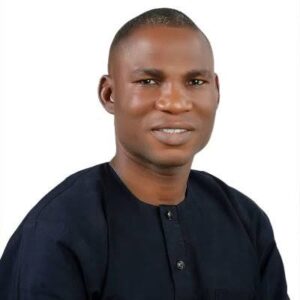A Professor of Economics at the University of Lagos, Olufemi Saibu, says blocking all leakages in the country will boost investors’ confidence and attract them from around the globe.
Saibu, also the Director of the Institute of Nigeria-China Development Studies of the university, made the assertion in an interview with the News Agency of Nigeria (NAN) in Lagos on Monday.
He spoke against the backdrop of the recent official visit of Nigeria’s President Bola Tinubu to China.
The President, had during a bilateral meeting with President Xi Jinping of China, signed various Memoranda of Understanding, including that of Cooperation Plan between the two countries.
The cooperation is aimed at jointly promoting the Belt and Road Initiative, ensuring peaceful application of nuclear energy and strengthening human resource development under the Global Development Initiative.
Saibu told NAN that there was the need for demonstration of patriotism among Nigerians to earn the trust of foreigners.
“The recent visit by President Tinubu to China is a way of consolidating some areas where we have made a significant impact by way of collaboration.
“For instance, there is no way the Federal Government can involve Chinese investors in business, especially with regard to infrastructure development, without legal and administrative frameworks that will provide leverage for them.
“Again, the visit was to institutionalise our relationship with China in a way that it will become government-to-government rather than government-to-individual or investor,” he said.
The don said that the visit was significant and a milestone in the Nigeria-China relationship.
He expressed optimism that any gap in the relationship of both countries had been closed to ensure better mutual relationship.
Saibu, also the Director of Quality Assurance of the university, said that the visit was a demonstration of commitment by the Federal Government to attracting investors and making Nigeria a destination of choice for business.
He said that all hands must be on deck in rebranding the country’s image, urging that the citizens should place the interest of the country above personal interests.
According to him, by doing this, accelerated national development will be achieved.
“It is wrong for us as individuals to place our own interests first and then begin to look for how the country will benefit from us.
“If we can change that orientation, then, we can be rest assured that a lot of things will change for our collective good,” Saibu said.
He highlighted the need for elimination of corruption.
“We urgently need to ensure that there is deterrent to corruption.
“There is more of an arrangement whereby we tend to look the other way when people closer to us are doing the wrong thing,” the don said.
According to him, when rules are applied equally, it will yield huge positive results.
The professor said that equity, justice and sincerity of purpose would eliminate cases of failed contracts.
“Again, we need to change stereotypes among our people.
“This is because, from studies we have carried out, it is undermining the benefits of what we are supposed to have from many foreign investors, including China.
He advised that Nigeria should focus on identifying and addressing institutional leakages and weaknesses to secure a better, bigger and brighter future.
On the Forum of China and African Corporation (FOCAC), he told NAN that the essence was to highlight areas of assistance to African countries by the Chinese Government.
According to him, the assistance is in the area of infrastructure, education, technology and business.
He said that it also provided an avenue for China to explore means of getting support from Nigeria, especially as regards raw materials.
He also said that the forum was to foster cultural exchange so as to build a world where love would reign.
Saibu said that there was the need for Nigeria to carry out a NEEDS assessment to identify areas it would need external support.
“Having done that, we can now come up with a proposal within the context of a signed MoU.
“Next will be to come up with a framework that will ensure monitoring, assessment and processes.
“With the current arrangement, when we have MoU targetted on specific projects, what we need to do is to put an institutionalised framework that will track how we implement every aspect of the MoU, to ensure we do the monitoring and evaluation at every stage.
“We don’t wait until there is crisis before we start correcting it.
“Therefore, there should be a kind of annual report that will provide accurate insight on jobs done, rather than wait for about three years, when the next FOCAC will hold, before discussing our relationship,” he said. (NAN)























